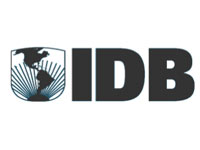
The Inter-American Development Bank (IDB) has approved two loans for a total of US$24 million to help The Bahamas promote foreign trade, improve customs operations, and fight poverty and improve students’ health and educational achievements.
A US$16.5 million credit will boost international trade by enhancing the ability of customs to collect revenue by strengthening management, modernizing operations, boosting borders monitoring, and developing the institutional trade platform.
A second, US$7.5 million loan will help fight poverty through the consolidation of existing programs into a Conditional Cash Transfer (CCT) program focused on changing behavior to improve educational achievement and a healthier lifestyle, including obesity control programs, among children from poor households.
Trade Sector Support
“Although The Bahamas is a vibrant economy, the country is somewhat isolated from international trade circles,” the project’s team leader Mario Umaña said. “As a result of the changes and the technical support to be implemented under the program, The Bahamas will have modern and agile customs operations, and the country will be in a better position to join the World Trade Organization,” he added.
The modernization and strengthening of customs’ institutional and operational capacity should reduce the negative impact of revenue-related offenses such as misclassification, valuation and contraband; the average time to clear an import declaration from 24 to 7.2 hours; the cost to prepare an import-export declaration by use of electronic submission from US$20 to US$0; the clearance time of imports from the time of physical arrival to exit from customs facilities from 72 to 24 hours; and the revenue-collection costs by 15 percent.
Cargo manifests submitted electronically and in advance are expected to increase from 25 percent to 80 percent; the number of customs declarations submitted electronically from 2 percent to 80 percent; as well as the number of duties and taxes paid electronically from 0 percent to 80 percent. Physical verifications should also be reduced substantially, based on risk analysis in order to speed up imports and exports processes. Overall, International Trade transactions will be facilitated with the implementation of an Electronic Single Window.
Trade related institutions will be strengthened and better prepared to negotiate and implement trade agreements.
Poverty alleviation, educational achievement and a healthier lifestyle
While all students in The Bahamas — a high-income island state with a population of about 350,000 — complete high school, only those with better performance levels obtain a graduation certificate from public high schools. With assistance from the IDB, the number of graduates is expected to rise substantially, while students performing below the required standard for graduation will be required to attend remedial lessons in order to receive the transfer.
“Better education outcomes will be one of the main goals of the program,” the project’s team leader Luis Tejerina said.
Under the program, the percentage of beneficiaries in the poorest segment of society is expected to increase from the current 28 percent to 42 percent. The funds will also support strategies aimed at boosting school enrolment and attendance.
In addition, the program will tackle obesity, which is a severe problem in the country — in grade 10, nearly one in every four children is obese, and the problem increases with age, with two out of three Bahamians between 21-60 years of age now overweight or obese. Low-income females are among the most affected.
The program is expected to help reduce children’s body mass index through a series of prevention programs, including school curriculum that comprises healthy eating, physical activity and body image; improvements in nutritional quality of food supplied in schools; support to healthy cultural practices; and support for teachers, health providers, and families to implement health promotion strategies and activities, including a reduction of time spent by children before TV and computer screens. The program will also support breast feeding of infants between 0-6 months.



